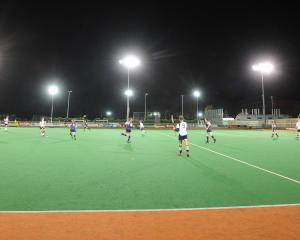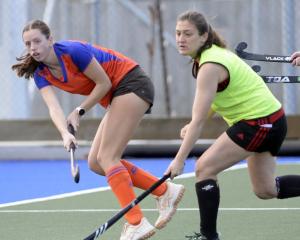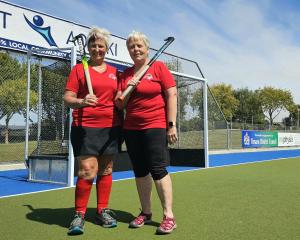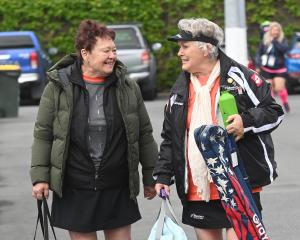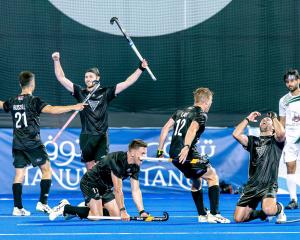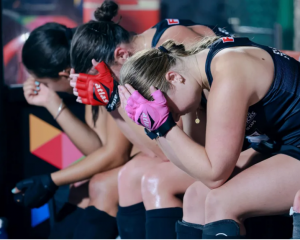Hayden Meikle: What are your roles within hockey?
Dave Ross: I coach the King's First XI and we've got a bit of an academy going, so we can bring our young guys through and give them a good skill base. With Southern, I'm the high performance coach. I overview the under-18 and under-20 programmes and the national league programme. I coach the national league men's team and train the women, as well.
HM: Just busy enough, then.
DR: Yeah, pretty busy.
HM: How would you describe the state of hockey in the South?
DR: In the national league, we've been punching above our weight. We've made semifinals and had a couple of finals. Players have come through the system and gone on to the Black Sticks - guys like Blair Tarrant and Hugo Inglis and Kane Russell and Nick Ross. We've had a number of New Zealand under-21 reps, too. Guys like Nick Elder and Jeremy Morris, and people like Tessa Jopp on the women's side.
HM: Can our best young players stay in the South or do they have to leave?
DR: There's a fair bit of pressure from the national coaches to get them up to Auckland. They get stronger competition up there and they become better players. I haven't got a problem with it as long as they come back and play for Southern, which they do.
HM: Who came up with the ''Dogs'' nickname for the Southern men?
DR: It came from the group that was together right from under-18 level. Boys will be boys. They made a national final that year and then brought the name right through the under-21 team and into the national league.
HM: Does Who Let The Dogs Out get played before a game?
DR: No, but there's a fair bit of barking and howling that goes on.
HM: Kids at school these days have got dozens of sporting options. How does hockey keep itself going?
DR: Yeah, it's a really good point. Hockey players need to be really good athletes. You need to be quick and strong and agile. We've got players who are at an Otago level in athletics, or who also do triathlons. I think the thing that attracts kids to hockey is skill level. It's difficult to play, but once you start making inroads, it's extremely rewarding. That's a good lure. And you don't need to be huge, physically.
HM: We need another turf in Dunedin, don't we?
DR: We do. The turf now is used until 10pm most nights. Some of the training times are not that attractive for kids. There's a lot of pressure on the turf and it is quite a limiting factor for us. If we don't get those extra resources, I think we'll lose some of our kids.
HM: Did you grow up in the South?
DR: Yes. Schooled in Dunedin right the way through. Then I did phys ed school and went to Auckland. I started teaching up there. Then I did a year at Kaikorai Valley before joining King's, where I've been for 20-odd years.
HM: How many games did you play for New Zealand?
DR: I got four caps. It was a series against Australia, just before they went to the Olympics. They were pretty formidable and we took a bit of a drubbing. It showed me the disparity of standards between the countries. To New Zealand's credit, there's been a lot of work done to bridge that gap. And we saw that the other day. We've developed a lot of good players, and on our day we are right up there in world hockey.
HM: It really bugs me that neither Black Sticks team has been in the South for a long time. Your thoughts?
DR: It would be ideal if they could come down more. It's been a long time, and that's disappointing. I know it's very expensive to move teams around the country. But they could be smarter in terms of maybe sending some of our top players down here to run coaching sessions or something. The kids would love it.
HM: Did you have ambitions of coaching the Black Sticks?
DR: I was with the New Zealand juniors. That was a three-year gig. It was really nice to go to a junior world cup. But the senior team would be difficult. It's a fulltime job and you'd have to move to Auckland. It's a cut-throat business, professional coaching. I like it down here. I don't like seeing Southern kids feeling like they have to leave to get good quality coaching. We're trying to set up something down here that means they can make it if they stay.



